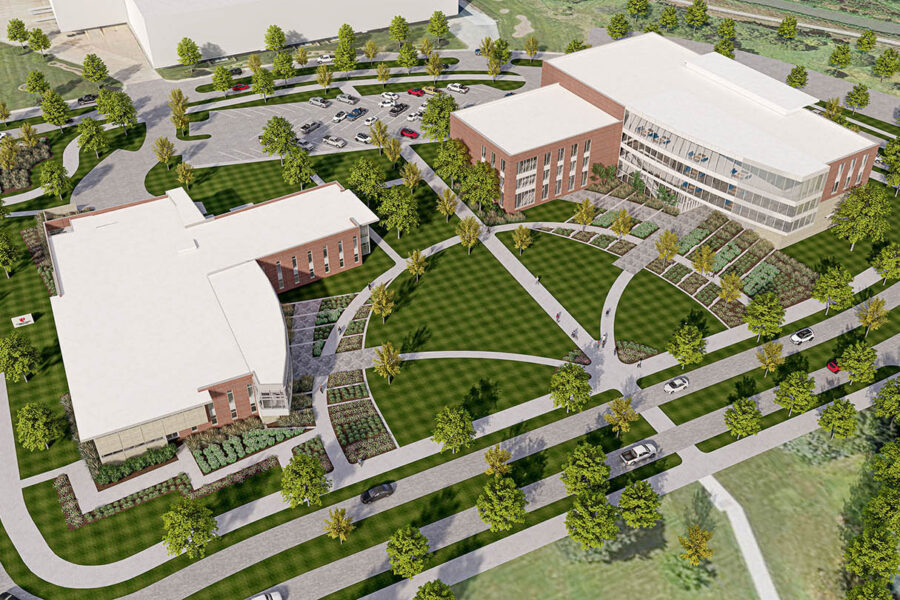Receiving training in rural Nebraska, John Craig, MD, says, allows health professions students to be well prepared to meet health needs of rural communities, become integrated into those communities and experience the culture of the community.
Those are among the reasons that Dr. Craig, a Minden native who now practices in his hometown, traveled to Lincoln on Thursday to testify in support of LB 721, a bill sponsored by Sen. Robert Hilkemann. The bill would provide funding toward the Healthier Rural Nebraska Initiative, providing new and expanded UNMC health science programs at the University of Nebraska at Kearney.
The appropriations would include $60 million in one-time funding from the American Rescue Plan Act for the facility and additional ongoing appropriations for UNMC programs. That ongoing appropriation would be $13 million, $14 million and $15 million, respectively, over the next three fiscal years.
“I strongly believe that expanding UNMC’s medical education to Kearney would attract students with a rural focus, thus increasing the probability that those students would eventually return to rural practice following training,” Dr. Craig said. “Students being able to see themselves living, working and perhaps raising a family in the rural community and the importance of that on the economic viability for such communities are experiences that could be provided by more rural-focused education.”
UNMC Chancellor Jeffrey P. Gold, MD; UNK Chancellor Doug Kristensen; UNMC College of Nursing Dean Juliann Sebastian, PhD; Sen. John Lowe of Kearney; and UNK Student Regent Noah Limbach also were among those to testify at the Appropriations Committee hearing. Supportive letters were submitted from all other UNMC deans and various other community and health care leaders, as well.
In his testimony, Dr. Gold noted that retirement and career burnout have touched every community in the state and have had “very high impact to rural Nebraska, where we were at critical levels before the pandemic.”
He and Dr. Sebastian said a majority of students in nursing and allied health programs offered at Kearney stay in rural Nebraska.
“Educating health care professionals close to home keeps them closer to home, which improves health care access in rural areas and contributes to a community’s economic vitality,” Dr. Gold said.
This funding would result in:
- New programming in the colleges of medicine, nursing, allied health professions, pharmacy and public health.
- Increased numbers of health care professionals needed for the growing health care demands of Nebraska's aging and increasingly diverse population, especially in acute care, chronic care and public health.
- Collaboration between UNK and UNMC to develop innovative undergraduate, graduate and professional programs to meet the current and emerging health care needs.
- Providing UNMC and UNK students access to state-of-the-art simulation education and training experiences.
Additional health care graduates also will have a positive impact, economically, on rural communities.
“The growth that will occur will support a thriving local health care workforce that contributes to local rural economies,” Dr. Sebastian said. “Strong local health care also helps attract new residents.”
